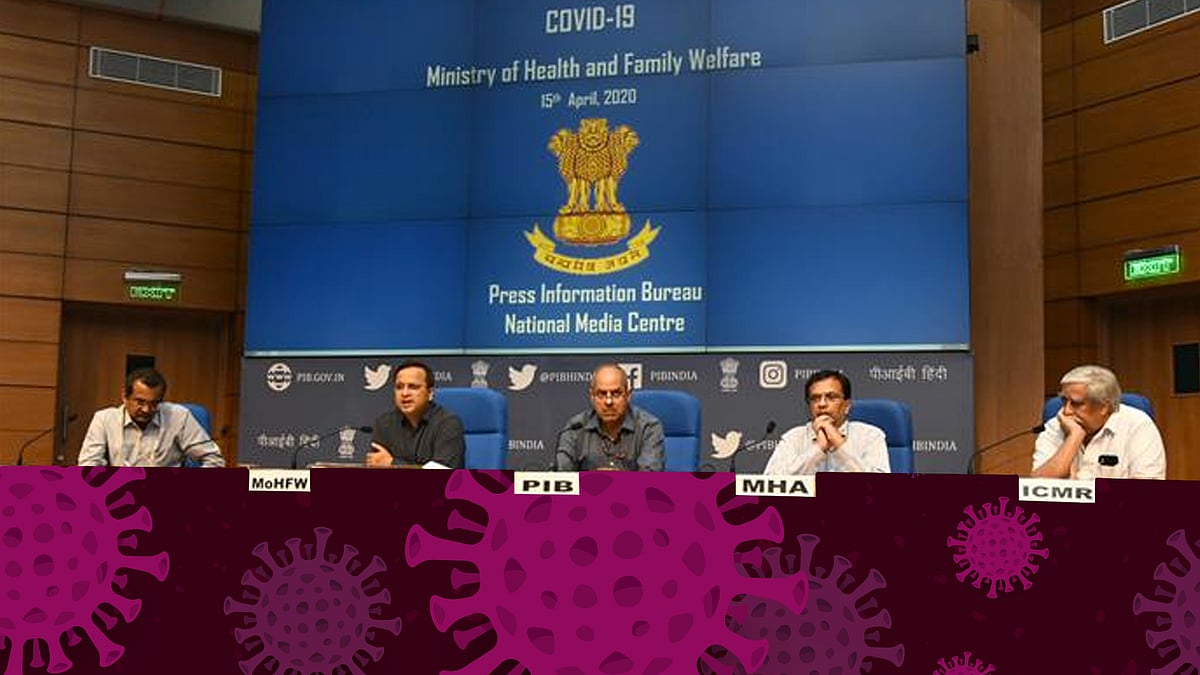Is Nitish Kumar’s government choosing lockdown protocol over students stranded in Kota?
The stranded students isn’t an ‘urban middle-class concern’, as some media reports would have you believe.
In the early 1990s, casual observers and attentive scholars had begun to see the parallels between the labourers and students moving out of Bihar. This migration of two different parts of human capital coincided on a similar trajectory. Obviously, it didn’t escape the attention of scholar Arvind N Das, who reflected on the contemporary Bihar of the last decade of the 20th century in his slim classic, The Republic of Bihar (Penguin, 1992).
“The out-migration of Bihari students, like those of labourers, to places of learning in other parts of India integrates Bihar further into the national labour market even as it produces a quasi-racial backlash in places such as Delhi,” Das wrote.
Three decades later, under lockdown to fight the coronavirus pandemic, Bihar is still coming to terms with both these components of its migrant population keen on coming back home.
The early weeks of the lockdown drew national attention to the difficult conditions under which migrant workers, for different reasons, tried to return to the state. The Bihar government cited lockdown violations as it opposed the facilitation by other states in sending back the migrants. However, the state government did come up with relief measures for stranded workers outside the state, and screening and quarantining those who managed to return.
Now, that has got a new twist with the second component of the migrants.
The last two decades has also seen the changing nature of the Bihari migrant student population as it has extended its presence beyond metropolitan centres like Delhi for university education and public service commission exam preparation to even new hubs of entrance exam coaching. That’s obvious in the new challenge the state government is grappling with.
The last few days have seen considerable pressure exerted on the Bihar government to bring back Bihar’s students stranded in the engineering and medical entrance test coaching hub town of Kota in Rajasthan. While the number of students from Bihar stranded in Kota has been subject to speculation, the Rajasthan chief minister's office estimates that around 11,000 students from Bihar are stuck in the coaching hub.
The matter has become judicial too, as a representation was sent to the Patna High Court via WhatsApp, asking the court to order the state government to bring the students safely back to the state. Lawyer Ajay Thakur argued against the state government seeing any equivalence between these students and migrant workers.
“While the migrant labourers have moved out in search of a livelihood, the students are dependents and minors and have gone for studies,” Thakur said. “They are not getting food, as [the] mess facility has closed down, according to newspaper reports, and they are facing difficulties.”
However, the Bihar government has consistently cited the violation of the lockdown as the key reason for its reluctance to bring back the students, even as it assured all help to the stranded students by coordination with local authorities. In its reply to the Patna High Court on Thursday, April 23, the state government said that while it was “sensitive to the plight of stranded students, bringing them back would amount to violation of lockdown guidelines.”
What has increased pressure on the state government has been the action taken by other state governments, including National Democratic Alliance-led governments like Uttar Pradesh and Madhya Pradesh, to evacuate their students from Kota by arranging buses.
Ten states have made arrangements so far, the latest being Chhattisgarh, and Bihar is now facing attack from the opposition parties. Using the evacuation exercises of other states in his attack, Rashtriya Janata Party leader Tejashwi Yadav has been quite vocal on social media, criticising the state government’s failure in coming to the rescue of the students.

Support Independent Media
The media must be free and fair, uninfluenced by corporate or state interests. That's why you, the public, need to pay to keep news free.
ContributeHowever, Bihar has also objected to such actions by other state governments. Last week, for instance, the Uttar Pradesh government’s move to send 250 buses to Kota to bring back its students was criticised by Bihar chief minister Nitish Kumar as an “injustice to the principle of lockdown”.
In midst of pressure from parents of the stranded students, and under attack from political opponents, the Nitish Kumar government faced a major embarrassment for officials apparently flouting rules to favour an MLA. Anil Kumar Singh, a Bharatiya Janata Party MLA from Hisua, managed to get a travel pass and brought his daughter back from Kota. Even though the state government ordered an immediate probe into the misconduct, the allegations of favouritism were widely made.
In a follow-up action, Anu Kumar, the sub-divisional officer of Sadar, Nawada — who had issued an inter-state travel pass to the MLA — was suspended for negligence. The MLA’s official driver and two security guards were suspended too for unauthorised travel.
However, there is growing clamour for government as well as party action against Anil Singh. In his initial reaction to the row over his travel, the MLA had maintained that bringing back his daughter was his parental duty.
Away from these party and power politics, the stranded students and their parents are exerting pressure through social media posts and placards, appealing to the chief minister for help. Some media reports also say that students have gone on hunger strike in Kota while releasing videos appealing to Nitish Kumar to evacuate them. “Hummey Ghar Jaana Hai (We want to go home)” and “Nitish help Kota” are two slogans commonly found on placards in many photographs and videos released on social media.
The perception that this may be an urban middle-class concern has been countered by some media reports. They show that even parents in rural areas, with incomes less than middle-class levels, have sold a part of their small landholdings or used their savings to send their children to Kota.
On April 23, for instance, the Patna edition of the Hindustan Times published a poignant story of Jagdish Sahu, a marginal farmer from Naudeha Balha village in Darbhanga district. He had sold his land to send his son, Satyanarayan, to Kota with the hope of his son becoming a doctor. Jagdish died during the lockdown and his Satyanarayan could not fulfil his father’s last wish: that his son light his funeral pyre.

Amidst all these tales and appeals, there is no escaping from what it reveals about the demographic spread of an aspiration in the state. It shows that across different sections, the prime financial and emotional investment in Bihar is a professional degree at the graduation stage and, later, success in competitive examinations for government jobs. These sections have chosen education for social mobility or consolidation.
There was a time when the state capital and small towns were good enough to realise such ambitions with their own cottage industry of coaching institutes. Not anymore.
However, when stuck in a crisis, Bihar’s people can’t look beyond home, and that’s understandable. The trickier question, however, is whether the state government chooses the principle of lockdown or the appeal of the stranded students. Not an easy choice, though political rule of thumb would suggest the latter.
 Modi isn’t bringing back Indians stranded in the Middle East, and he’s running out of goodwill
Modi isn’t bringing back Indians stranded in the Middle East, and he’s running out of goodwill In this time of crisis, India’s civil services have stepped up to the plate
In this time of crisis, India’s civil services have stepped up to the plate
Power NL-TNM Election Fund
General elections are around the corner, and Newslaundry and The News Minute have ambitious plans together to focus on the issues that really matter to the voter. From political funding to battleground states, media coverage to 10 years of Modi, choose a project you would like to support and power our journalism.
Ground reportage is central to public interest journalism. Only readers like you can make it possible. Will you?
